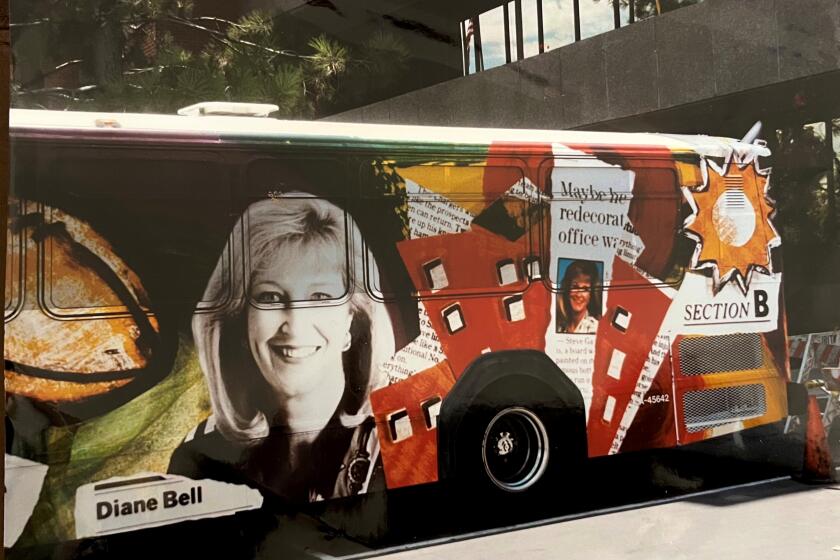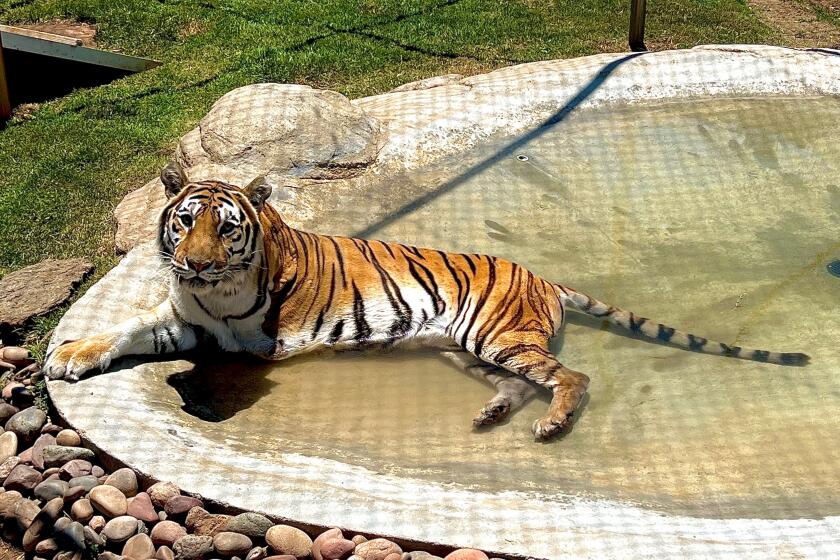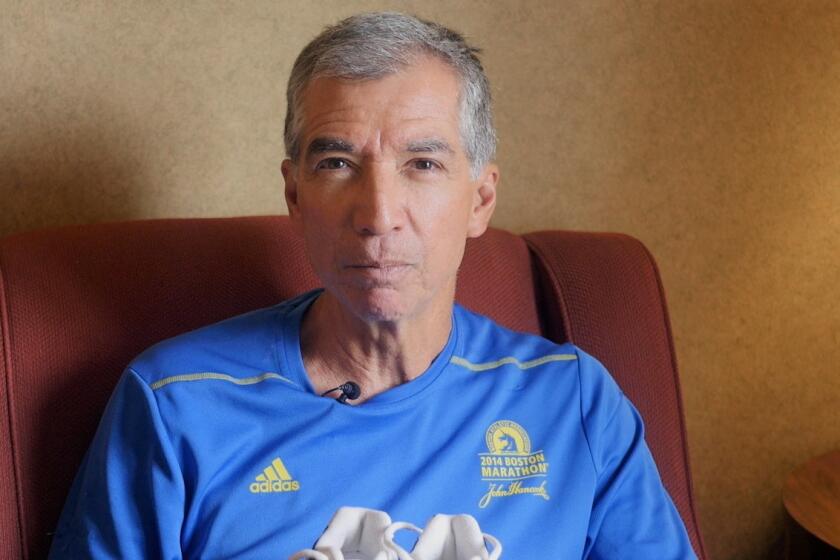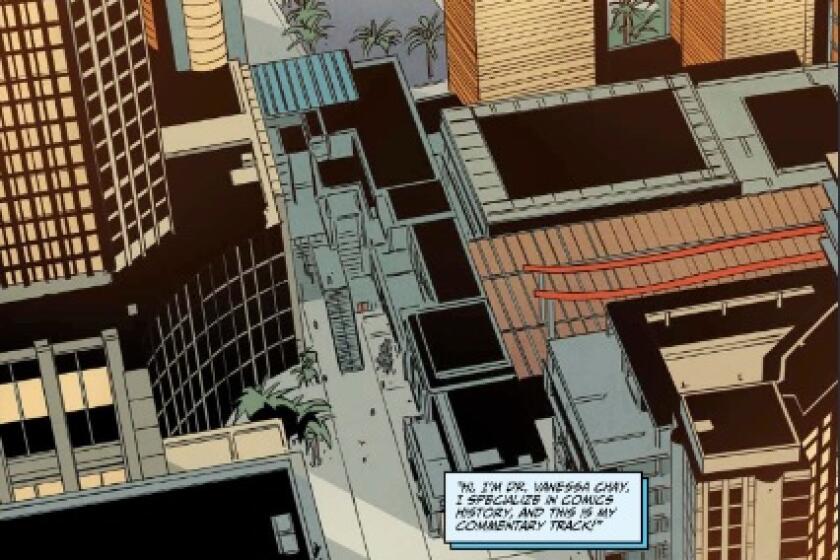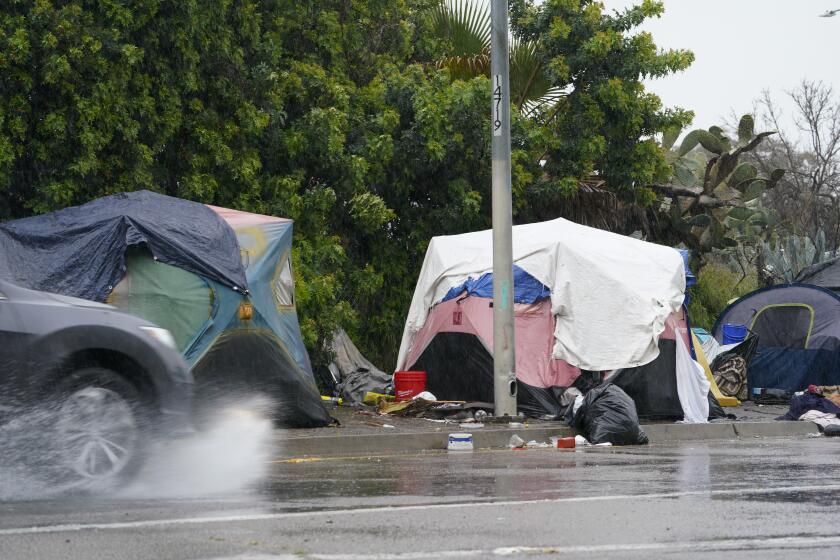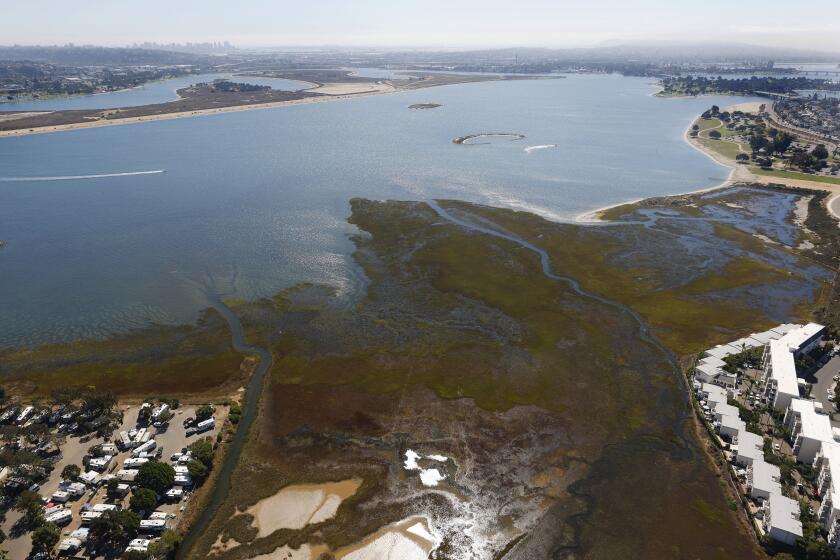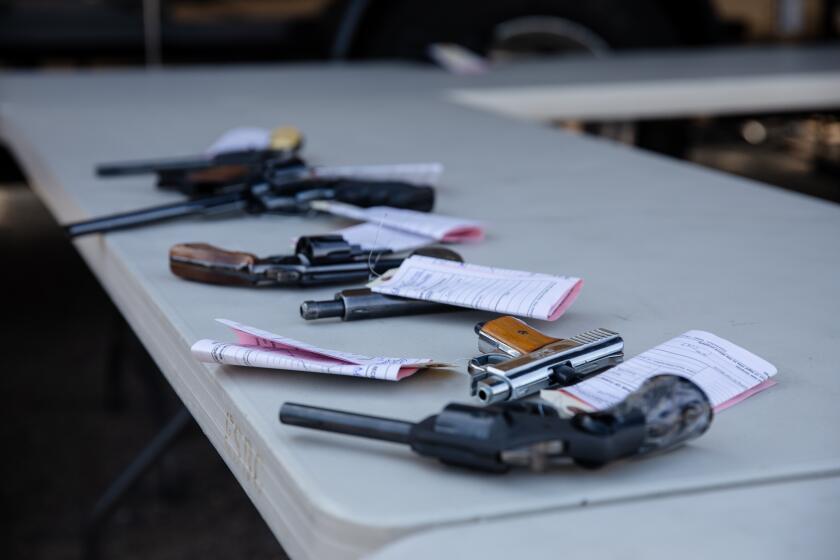Column: What links San Diego rugby, weather news and African wildlife?
NBC 7 weathercaster Dagmar Midcap and San Diego Legion’s Joe Pietersen are battling to save exotic species in Africa
What does an elephant frantically searching for water in Botswana, Africa, have to do with local NBC TV weather forecaster Dagmar Midcap and San Diego Legion pro rugby player Joe Pietersen?
A lot, as it turns out.
The very public lives of Midcap, who explains weather changes on San Diego’s weeknight news, and the high-scoring rugby kicker Pietersen, have a less public side — a passion for preserving endangered species in Africa.
Pietersen, a native of South Africa, spends his off-season time organizing and leading excursions into the remote brush of various south African countries — tracking and de-horning rhinos to protect them from poachers, capturing and putting location transmitting devices on critically endangered wild dogs and digging water holes in rural Botswana. These holes attract elephants and other wildlife away from deadlier ventures into populated areas in search of water.
Armed with the same passion for preservation, Midcap pursues the stories of endangered animals. On narrated videos, she highlights their critical loss of habitat, the effects of starvation and drought, and the grim futures these animals face as they clash with humans more frequently.
Midcap and Pieterson did not meet on an African safari. Rather fate (and a mutual acquaintance) brought these unlikely allies together a half-world away in San Diego. They quickly realized they share a common bond and could help one another expose the plight of these highly vulnerable species.
In late August, Midcap will join Pietersen’s expedition into the Botswana outback to dig several more water holes. They plan to re-activate abandoned bore holes that years ago were dug by poachers or provided water for organized hunting safaris that once sought big game in remote areas.
The expedition will hire villagers to help re-dig the holes, install pipes, a pump and a diesel engine. In a miraculously short time, water is pumped out to create a new water source for drought-plagued animals. The wells are geared to produce up to 5,000 liters of water an hour, enough to serve 30 to 40 elephants, Pieterson said.
“The impact is literally overnight and immediate,” Pietersen added. The day after activating their first Botswana watering hole last September, they found lion tracks, visiting giraffes, marabou storks and many other birds.
He estimates his team will have restored 12 watering holes by the end of this year. They are working with an elephant preservation group and have the blessing of the Botswana government.
Midcap is not coming empty handed. Each of these refurbished watering holes costs between $6,000 and $7,000. She has found a San Diego businessman and preservationist, Barry Soper, who has agreed to help finance a well. Pietersen, who created a nonprofit organization called Nkombe Rhino, is grateful for any and all contributions to the effort.
Midcap previously had interviewed Pietersen for a special on wild “painted” dogs, the most endangered carnivore in South Africa because it is so adept at invading farmers’ fenced-off areas and attacking livestock. Pietersen’s team fits the dogs with tracking devices enabling its workers to rush to the rescue if dogs stray into inhabited territory where they risk being hit by trucks and shot by farmers.
Another of the rugby player’s major projects is protecting rhinos from poachers. “We shaved off the horns of 40 to 45 rhinos last year, and we hope to do more this year,” he said. After the animal is sedated, its horn is removed 3.5 inches above its base, then ground smooth.
“This was controversial three to four years ago, but the (wildlife) parks started doing it as a last resort,” explained Pietersen. “The rhino is without its horn, but at least it stays alive.” Plus, the horns grow back and may have to be removed again.
Pietersen and his brother, Willem, together run a safari business, Nkombe Africa, exposing tourists to the exotic wildlife of southern Africa.
They also offer optional behind-the-scenes educational components to their tours. Tourists can pay a few more dollars to be escorted to off-the-beaten-path territory to observe and even take part in animal preservation activities and anti-poaching surveillance. They get to fit wild dogs with tracking devices, witness rhino dehorning, observe endangered animals quench their thirst at newly-drilled watering holes and visit anti-poaching camps where specially trained dogs track poachers.
Pietersen won’t be doing that for a while, though. The San Diego Legion plays its season home opener at the University of San Diego stadium on Feb. 9.
Unlike Pietersen, who grew up with easy access to exotic animals and lives with his wife and son in a village bordering Kruger National Park, Midcap’s passion for endangered exotic species grew out of her love for animals in general.
She is producing an ongoing series of occasional half-hour specials that focus on threatened African wildlife — an orphaned rhino left for dead by poachers in South Africa, reticulated giraffes in Kenya (with San Diego Zoo Global), painted dogs in South Africa and the translocation of endangered elephants from South Africa to Mozambique.
She sees this focus as a natural extension of weather patterns and climate change, which affect us all. “That’s my passion. We’re all tied together,” she said, explaining that a hurricane impacts people living far away from where it developed.
Last fall Midcap, armed with her wildlife segments that were well received by viewers, met with top NBC officials in New York to seek the network’s support for a regular series of specials to air nationally.
Her plea worked. So when she is not explaining local weather phenomena, she is arranging for travel permits, wilderness guides, access to restricted wildlife areas, and forging liaisons with conservation groups in various African countries and in Indonesia. She plans to embed with anti-poaching units and track leopards.
Midcap wants to be a force for global conservation.
“I really want to be able to do something about it and spread awareness,” she says. She sees the NBC platform as a valuable tool for alerting the world to precious natural resources we are on the brink of losing forever.
Get Essential San Diego, weekday mornings
Get top headlines from the Union-Tribune in your inbox weekday mornings, including top news, local, sports, business, entertainment and opinion.
You may occasionally receive promotional content from the San Diego Union-Tribune.

